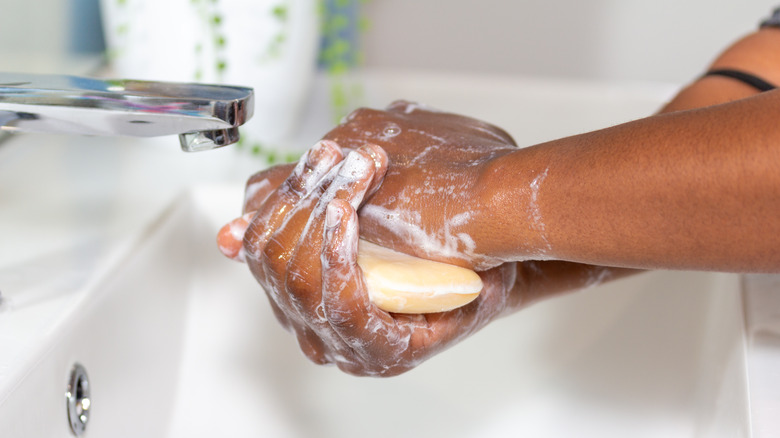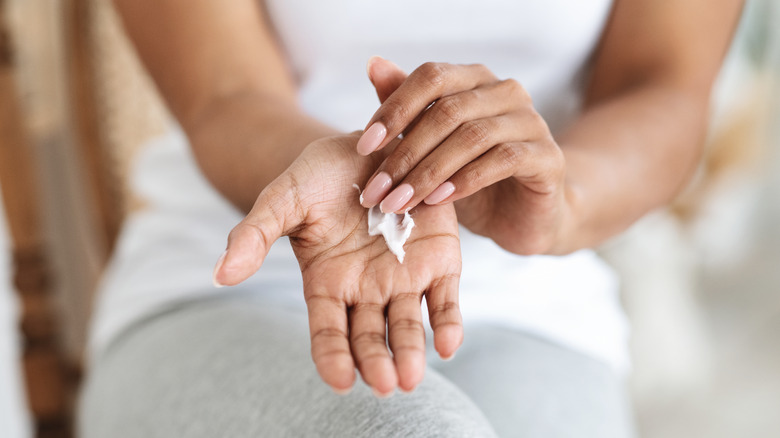Why Washing Your Hands Too Much Is Worse Than You Think
Washing your hands frequently is a good idea to keep germs and bacteria at bay. It is always a good idea to wash your hands before and after preparing food and treating wounds, and after going to the bathroom, touching an animal, or touching surfaces that get touched frequently (think door knobs and handles of all kinds in public places), according to the Mayo Clinic. To get the best out of hand washing, you need to wet your hands, scrub them with soap for at least 20 seconds, and then rinse them under warm water, per the Centers for Disease Control and Prevention (CDC).
Plain soap and water are enough to get your hands clean, but you can opt for hand sanitizer if you're not around a faucet. For the best result, use a sanitizer that contains at least 60% alcohol. You might think that you're doing yourself a favor by washing your hands often, but is there such a thing as washing your hands too much?
Over washing can lead to several problems
As it turns out, you can wash and sanitize your hands too much. One of the downsides of washing your hands too often is that it removes some of the natural oils in your skin. Consequently, it can cause your skin to become too dry, according to the University of California Davis Health. The result of dry skin might look like redness or itching. In addition, dry skin might lead to cracking, giving bacteria an easy way to enter your body. Cracked skin opens the door for more germs, and it can lead to inflammation if you're not careful.
One way to avoid dry skin is to moisturize your hands immediately after you wash and dry them, per UC Davis Health. If dryness is a problem, choose a thick cream or ointment. Petroleum jelly is also a nice option because it doesn't contain any harmful or irritating ingredients.


